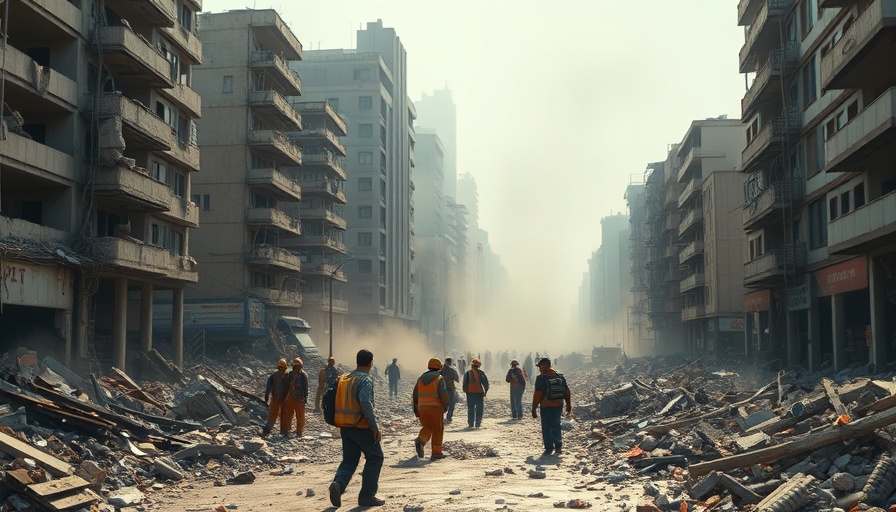
Understanding the Latest Israel-Iran Conflict: A Growing Tension
The recent escalation of hostilities between Israel and Iran marks another chapter in their long-standing conflict, as both nations respond to actions that threaten their national interests. On Friday night, the Israeli Air Force (IAF) conducted a preemptive strike targeting critical components of Iran's nuclear program, resulting in the deaths of key military figures and nuclear scientists.
In retaliation, Iran unleashed a barrage of ballistic missiles towards Israel in a rapid response intended to assert its capabilities and threaten Israel’s security. As alarms echoed across Israeli cities, the nation braced for the fallout from these aggressive exchanges—this time resulting in confirmed casualties with at least 8 fatalities reported along with hundreds injured.
The Broader Implications of Military Actions
This latest round of military conflict offers crucial insights into the geopolitical landscape in the Middle East, illustrating how swiftly the situation can escalate. The U.S. administration's decision not to intervene stresses a complex relationship shaped by strategic alliances and historical animosities. Understanding these dynamics is crucial for those following international relations, particularly as they affect civilians in the region.
What Parents Should Know About Global Conflicts
For parents, the evolving situation bears significance beyond headlines—it raises questions about global stability and implications for future generations. Discussing such news with children can be challenging. Providing context about historical hostilities and fostering an understanding of different cultures can help cultivate well-informed young minds.
Expert Opinions: Insights from Analysts
Political analysts emphasize that the recent military actions accentuate a precarious balance in the region, where military capabilities can shift power dynamics unexpectedly. Observers are noting how Iran’s missile launches, while intended to display strength, may ultimately lead to severe consequences, particularly if Israel perceives further threats to its sovereignty.
Future Predictions: What Lies Ahead?
As tensions simmer, predictions about further escalations loom large. Experts warn that if hostilities continue without diplomatic resolutions, we may witness heightened military engagements that could potentially draw in more regional players, affecting the broader stability in the Middle East.
Historical Context: The Longstanding Feud
Understanding the history of Israeli-Iranian relations is essential. Following the 1979 Iranian Revolution, relations soured, and ever since, the two nations have viewed each other as existential threats. Israel's fear of a nuclear-armed Iran is countered by Iran's determination to assert its influence throughout the region, particularly through proxies in Lebanon, Syria, and Yemen.
The Importance of Staying Informed
Amid this conflict, it's vital for global citizens, especially parents, to stay informed. Educating oneself on international affairs can empower individuals to have meaningful discussions about world events with their families. Media literacy is essential; discerning between various narratives not only helps in understanding the complexity of these issues but also highlights the importance of diplomacy over conflict.
Conclusion: The Path Forward
The trajectory of the Israel-Iran conflict remains uncertain as both nations grapples with the consequences of their military actions. As events unfold, it becomes imperative to approach the topic not with fear, but with a sense of hope—hope that dialogue and understanding can eventually prevail over violence. Staying connected through reliable news sources and open discussions can foster an informed public capable of advocating for peace in the face of adversity.
 Add Row
Add Row  Add
Add 




 Add Row
Add Row  Add
Add 

Write A Comment